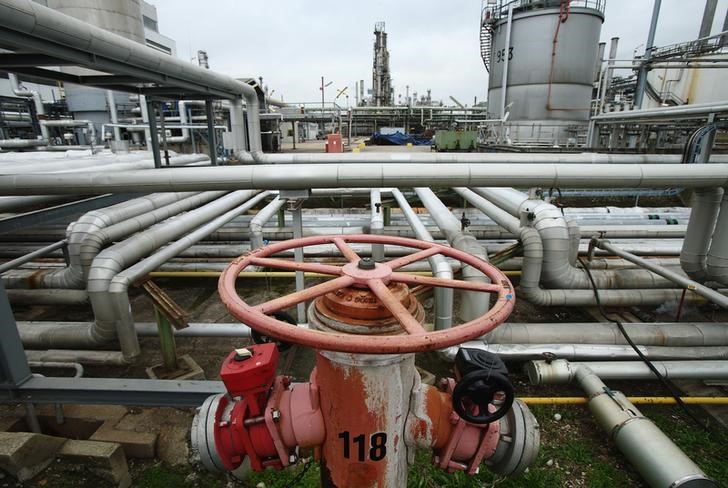JPMorgan’s Dimon weighs in on potential Fed chair candidates
By Geoffrey Smith
Investing.com -- Crude oil prices fell on Monday after the Suez Canal Authority confirmed that it had freed the stricken Ever Given container ship, unblocking the waterway that carries over one-tenth of the world's seaborne oil trade.
The huge ship had prevented over 300 ships from entering the waterway as scheduled and had forced numerous ships to reroute via the southern tip of Africa, the Cape of Good Hope. However, shipping giant Hapag-Lloyd said Monday's news meant that it will not reroute any further cargoes, a lead that other shippers are likely to follow.
The news has taken out some of the uncertainty premium that was priced into oil at the end of last week, even if it may still take some time for supply and demand for specific cargoes in specific markets to rebalance
By 11 AM ET (1600 GMT), U.S. crude futures were down 1.0% at $60.38 a barrel, while Brent crude was down 0.9% at $63.84 a barrel.
"The market is now pricing in expectations that traffic will return to normal within days as the stuck container ship in the Suez Canal is partially re-floated and engineers indicated that the trickiest phase to remove it from the Canal is behind us," said Rystad Energy analyst Louise Dickson in emailed comments.
With the Suez drama effectively resolved, attention is slowly turning to the monthly meetings of OPEC and its allies who will set their output quotas for May. Analysts are split over the likely outcome of the meeting, against a backdrop of Russian pressure for greater market share.
The outlook of the meeting is highly uncertain, given that the setback to demand from the latest wave of Covid-19 in India, Europe and South America will test the patience of producers such as Russia and Saudi Arabia, who are currently keeping millions of barrels of oil producing capacity idled to support prices.
Hopes that Europe, in particular, would have the pandemic far enough under control to allow for a full summer tourism season and a rebound in international air traffic have all but died in recent days, as both German and French leaders signaled the possible need to tighten restrictions on business and social life again.
Prices were also pressured on Monday by the weekend news that China and Iran had signed a long-term agreement on economic cooperation, which some argued presaged a more active role by China in reviving Iran's oil production. Rystad's Dickson noted that Iran - which isn't covered by the current OPEC+ deal on output restraint - was probably already producing over 2.1 million barrels a day of crude in March.
